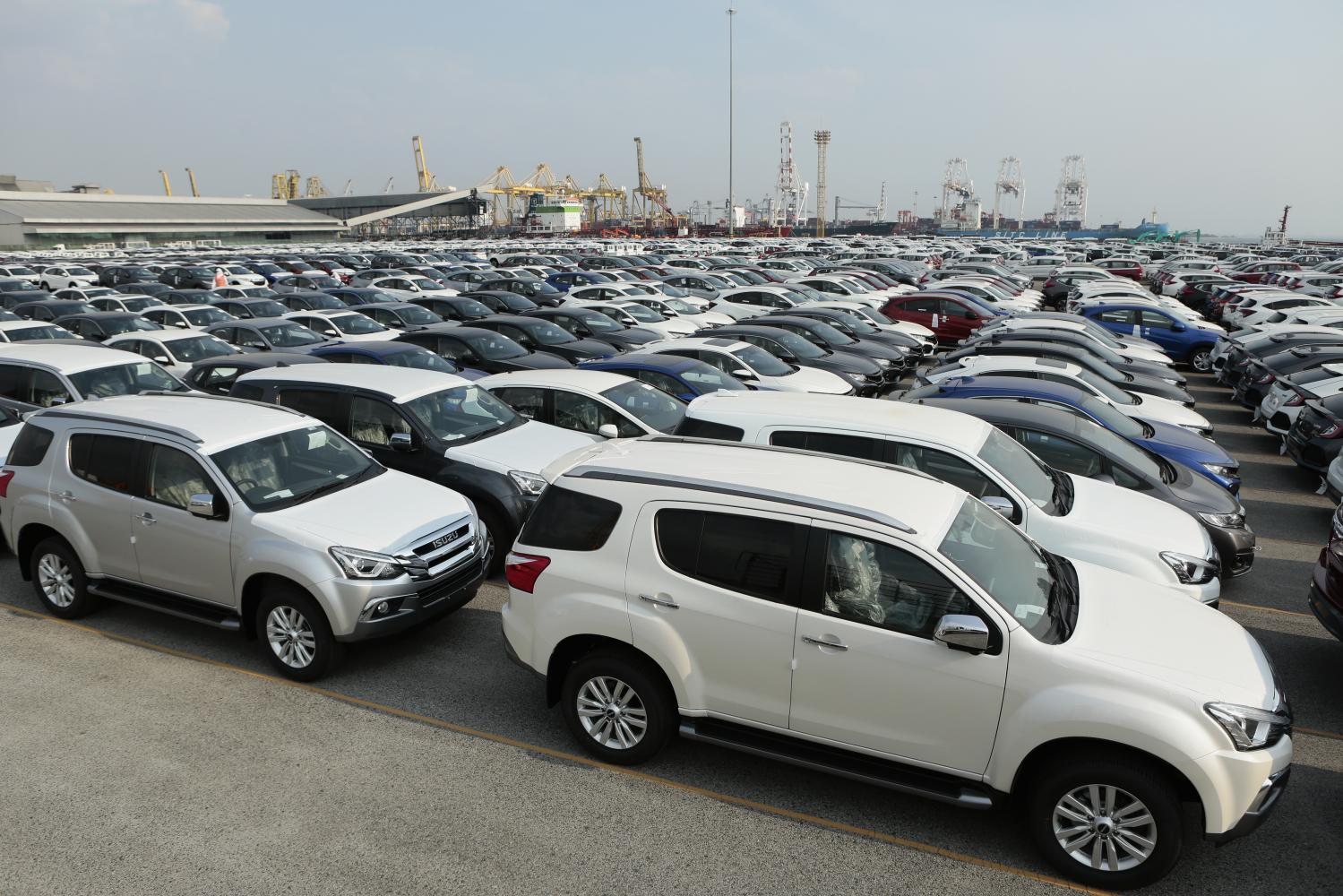
Thai car exporters' prospects have become brighter after the Philippines scrapped plans to impose tariffs on cars imported from Thailand, and returned 1.2 billion baht worth of safeguard duty to importers.
According to Thai Commerce Minister Jurin Laksanawisit, the Philippines agreed on Aug 6 to scrap the tariff plans and return the import duties, after Mr Jurin and other officials ramped up attempts to resolve the trade dispute.
The Philippines set up a committee to study and impose safeguard measures on Thailand's passenger car and pickup truck exports in December 2020, leading to the collection of import duties on Thai passenger cars and pickup trucks from Feb 1 this year.
The duty has been charged on Philippine importers at 42,000 baht per passenger car and 66,000 baht per pickup truck. This has resulted in higher expenses for Philippine importers, with a total of 1.2 billion baht charged on the two types of imported cars, according to Mr Jurin.
The safeguard measure has been seen as a retaliatory move in the long-running cigarette tax dispute between the two countries.
Thailand has established a special task force to defend the allegations and submitted letters to the trade minister of the Philippines, calling on its Asean neighbour to respect World Trade Organisation (WTO) rules and refrain from imposing restrictions on imports in the form of additional tariffs.
Thailand has also threatened to bring the dispute to the WTO for settlement.
Mr Jurin said the Philippines' decision will help Thailand retain market share in two vehicle categories in the Philippine market, worth 60-70 billion baht a year.
He said pickup trucks imported from Thailand control up to 99% of that particular automotive niche in the Philippines, while Thai passenger cars control 20% of that sector.
According to a study by Thailand's International Trade Promotion Department, in recent years the Philippines' car market has reported continuously healthy growth driven by the population's higher purchasing power, relatively low car occupancy, and rising replacement demand.
The department found that between 2016 and 2019 the automotive industry of the Philippines averaged sales of 425,000 units a year.
However, thanks to the impact of the Covid-19 pandemic only 244,274 units were sold in the Philippines in 2020 -- a steep drop compared with the 457,110 units sold in the country the year before, according to data provided by the Chamber of Automotive Manufacturers of the Philippines and the Association of Vehicle Importers and Distributors.